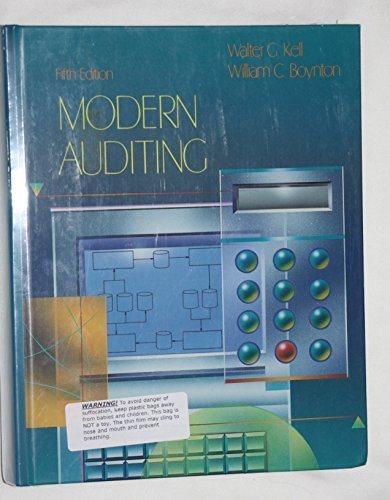Watts and Williams, a firm of certified public acccountants, audited the accounts of Sampson Skins, Inc., a
Question:
Watts and Williams, a firm of certified public acccountants, audited the accounts of Sampson Skins, Inc., a corporation that imports and deals in fine furs. Upon completion of the examination the auditors supplied Sampson Skins with 20 copies of the certified balance sheet. The firm knew that Sampson Skins wanted that number of copies of the auditor's report to furnish to banks and other potential lenders. The balance sheet in question was in error by approximately \(\$ 800,000\). Instead of having a \(\$ 600,000\) net worth, the corporation was insolvent. The management of Sampson Skins had "doctored" the books to avoid bankruptcy. The assets had been overstated by \(\$ 500,000\) of fictitious and nonexisting accounts receivable and \(\$ 300,000\) of nonexisting skins listed as inventory when in fact Sampson Skins had only empty boxes. The audit failed to detect these fraudulent entries. Martinson, relying on the certified balance sheet, loaned Sampson Skins \(\$ 200,000\). He seeks to recover his loss from Watts and Williams:
1. If Martinson alleges and proves negligence on the part of Watts and Williams, he would be able to recover his loss.
2. If Martinson alleges and proves constructive fraud, i.e., gross negligence on the part of Watts and Williams, he would be able to recover his loss.
3. Martinson is not in privity of contract with Watts and Williams.
4. Unless actual fraud on the part of Watts and Williams could be shown, Martinson could not recover.
5. Martinson is a third party beneficiary of the contract Watts and Williams made with Sampson Skins.
Required:
Indicate whether each of the foregoing statements is true or false under common law. Give the reason(s) for each answer.
Step by Step Answer:

Modern Auditing
ISBN: 9780471542834
5th Edition
Authors: Walter Gerry Kell, William C. Boynton, Richard E. Ziegler





